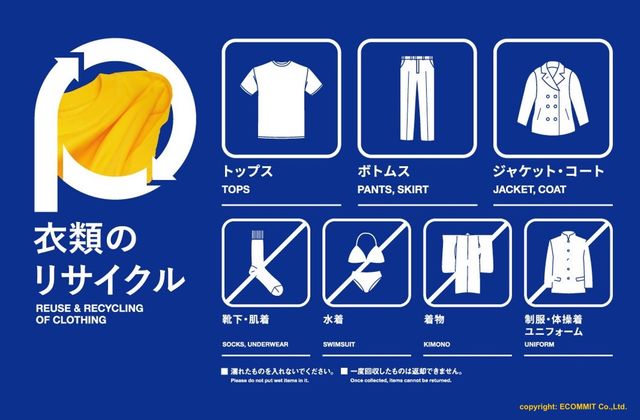Fashion, clothing and textiles
What is it? Early Majority offer a nine-piece collection of outdoor wear designed for modularity and high versatility (Webb, 2022). They also offer membership, which includes members-only benefits, such as magazine content and exclusive products (Early Majority, 2022c). They aim to capture value from their membership services rather than producing and selling products in order to discourage overconsumption (Webb, 2022). They further support sufficiency through offering lifetime free repairs on their clothing and building a buy-back marketplace for clothing resale (Early Majority, 2022b).
Why is this important? The fashion industry creates large negative impacts on the environment through clothing production and use, for instance through using up natural resources, causing water pollution, emitting greenhouse gas emissions and accumulating waste (Allwood et al., 2006). If the industry continues to grow, its share of the global carbon budget could increase to 26% by 2050 (Ellen MacArthur Foundation, 2017). Clothing is heavily underutilized in the mainstream fast fashion system and the number of wears of a garment has decreased by 36% in 15 years (Ellen MacArthur, 2017).
Main resource strategy: Slowing the loop through offering modular, long-life products and a lifetime warranty with free repairs.
Other resource strategies: Narrowing the loop through producing as little as possible, as well as creating value from membership services rather than clothing sales.
Business model aspects:
- Value Proposition: Early Majority offer outdoor clothing that is designed for modularity and versatile use (Webb, 2022). They aim to include a female perspective in their design so that the clothing can be worn easily by everyone and makes the outdoors accessible to all (Early Majority, 2022a). They also offer a membership with exclusive products, discounts and access to the ‘Tools for Leaning Out’ journal, among other advantages (Early Majority, 2022c).
- Value Creation & Delivery: Value is created through designing, producing and selling outdoor clothing but also through offering membership services and free repairs for all customers. Sales are currently only online and the products include some recycled materials, such as re:DOWN (Early Majority, 2022d).
- Value Capture: Early Majority capture value through both product sales and membership fees. Products are cheaper for members and a lifetime membership costs $ / € 358 (as of May 2022) (Early Majority, 2022c).
Strategies for degrowth/ sufficiency (based on sufficiency strategies from Niessen & Bocken, 2021):
- Awareness-raising: As part of the membership offer, Early Majority offer access to the ‘Tools for Leaning Out’ journal to their members, promoting the idea of ‘leaning out’: “the unfortunately radical notion that it’s the system that’s broken not us” (Early Majority, 2022c).
- Design & Green alternative: Early Majority clothing is designed with modularity and multi-functionality in mind. Items can be adjusted as needed and layered to create outfits that are suitable for different occasions (Early Majority, 2022d). Additionally, items can be personalised with removable badges which enable customers to change up their style without needing to buy new clothing (Webb, 2022).
- Life extension service & Long warranty: Early Majority offer a lifetime guarantee for their products with free repairs to ensure longevity for their items (Early Majority, 2022b).
- Reuse: As the business only launched in 2021, there is not yet a supply of secondhand Early Majority items for resale. Yet, the company offers a buyback scheme and plans to offer a resale marketplace for its own items in the future (Early Majority, 2022b).
Degrowth: Early Majority aim to support the degrowth approach by fighting overconsumption and –production. While they aim to grow as a company, the business works towards generating revenue from membership fees rather than sales (Webb, 2022).
Business model experimentation practices: Early Majority launched in 2021 and are trialling their membership offering alongside product sales. While product sales to non-members are currently still possible, the business aims to eventually only sell to members and generate more revenue through membership services than sales (Webb, 2022).
Tools, methods and approaches used: Early Majority have been working on integrating a degrowth approach into the practice of a fashion business (Webb, 2022).
Sustainability outcomes: With the business only launching in 2021, no sustainability impact have been quantified yet.
Sources:
Allwood, J. M., Laursen, S. E., De Rodríguez, C. M., & Bocken, N. M. (2006). Well dressed. The present and future sustainability of clothing and textiles in the United Kingdom. University of Cambridge.
Early Majority (2022a). About. Accessed 31 May 2022 at https://www.earlymajority.com/about
Early Majority (2022c). Membership. Accessed 31 May 2022 at https://www.earlymajority.com/membership
***
About project Circular X
Project Circular X is about ‘Experimentation with Circular Service Business Models’. It is an ambitious research project funded by the European Research Council (ERC) which supports top researchers from anywhere in the world. Project CIRCULAR X runs from 2020-2025. The project is led by Principal Investigator (PI) Prof Dr Nancy Bocken, who is joined by a multidisciplinary team of researchers at Maastricht Sustainability Institute (MSI), Maastricht School of Business and Economics, Maastricht University. The project cooperates with businesses who want to innovate towards the circular economy.
Project Circular X addresses a new and urgent issue: experimentation with circular service business models (CSBMs). Examples of such new business models include companies shifting from selling products to selling services and introducing lifelong warrantees to extend product lifetimes. However, CSBMs are far from mainstream and research focused on experimentation is little understood. The research aims to conduct interdisciplinary research with 4 objectives:
- Advancing understanding of CSBMs; their emergence and impacts
- Advancing knowledge on CSBM experimentation
- Developing CSBM experimentation tools
- Designing and deploying CSBM experimentation labs
Funding source
This project has received funding from the European Research Council (ERC) under the European Union’s Horizon 2020 research and innovation programme, grant agreement No. 850159.
Using this information
When you cite this publication, please use the following source:
Circular X. (2022) Case study: Early Majority - Outdoor clothing and membership to support degrowth. Accessed from www.circularx.eu



